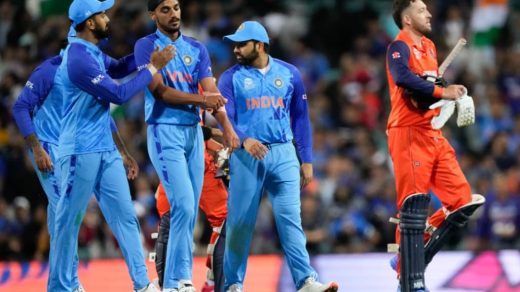How to Be a Cricket Scorer: In 2004, the ODI series between India and Pakistan was marred by an embarrassing mistake on the scoreboard. Inzamam-ul-Haq raised his bat thinking that he had scored a century, but the scoreboard indicated a lower score of just one run. Mistakes on the scoreboard are common, and they can ruin a game. To ensure accuracy, you must have knowledge of the game rules and their requirements.
Courses For Cricket Scorers
If you want to become a professional cricket scorer, there are several courses available. The basic course, which is typically 14 hours long, teaches the fundamentals of cricket scoring, including how to use the box-method paper system. In addition, it teaches the laws of the game and how they apply to cricket scoring.
To become a Level 2 cricket scorer, you must have completed 10 matches, and have accumulated enough evidence to be rated by ECB assessors. After completing the course, you can then apply for an assessment and professional discussion. This is included in the course fee. Level 1 scorers can also take continuous professional development modules. These modules cover the basics of linear scoring, electronic scoring, and Duckworth-Lewis Stern calculations. Upon completion of these modules, you will receive an ECB ACO certificate.
How to Be a Cricket Scorer
You can also take one of the Association of Cricket Officials’ online courses. These courses are available to anyone involved in cricket. You can also view live demonstrations of cricket scoring at cricket matches on YouTube. Sue Drinkwater and RunsWktsOvers have channels that showcase live demonstrations. Whether you want to be a Level 2 or Level 3 cricket scorer, the courses will prepare you for this prestigious honor.
You can also take a three-hour standalone course to learn more about the role of umpires. This course will give you a taste of the role and outline your next steps. It won’t teach you everything you need to know, but it will give you enough knowledge to help you make your career as a cricket umpire.
You can also take a course in cricket scoring if you are already an accredited level 1 cricket scorer. This course is available as an online course or a face-to-face course in Surrey. This is a great choice for newcomers as it is tailored for cricket players who want to develop their skills and get better at the game.
Cost Of Courses
If you’re interested in becoming a cricket scorer, the first step is to get accredited. You can do this by joining a local cricket club, but you’ll also need to prove your competency over time. This means that you’ll need to score at least one First or Second Grade match in NSW Premier Cricket and serve an apprenticeship by scoring minor representative matches.
There are a number of courses available to help you become a cricket scorer. Some are completely free of charge and others cost a small fee. A Club Scorer course, for example, will teach you how to understand and use the basic cricket scoring symbols and signals. The course is suitable for both complete beginners and those who already have some cricket-scoring experience. The cost of the course includes a free year’s membership with the ECBACO.
Read Also: How to Alley Oop in 2K23
The ECB offers accredited courses in various aspects of cricket scoring. A level one course, for example, focuses on the basics of scoring. An advanced course, on the other hand, focuses on more advanced areas, such as planning and preparation. It also covers additional duties that a cricket scorer may have to perform.
The course itself is usually 12 hours in duration. This includes lessons in field craft and match management. An exam will follow the Course. The exam will be a combination of PowerPoint presentations and discussion in a classroom environment. You must be physically fit to sit at a desk and take notes.
Alternatively, you can also become a cricket scorer by taking an online course. Several of the courses are free of charge, while others may require a small fee. For example, the DLS offers online and offline courses that teach basic scoring. A Level 1 course consists of two full days or five evenings of coursework. Upon completion of the course, you’ll be able to score a match and receive professional feedback. After this, you’ll be qualified and can earn a certificate.
Courses Available Online
If you want to be a part of the cricket team, you can take courses that train you as a cricket scorer. Whether you’re interested in the sport or just want to make a little extra money, there are courses available online. Many of these courses will teach you the basics of cricket scoring, from how to use the box method paper system to the Laws of the Game.
There are also online courses aimed at improving your skills as an umpire. Whether you want to become a senior umpire or a recreational cricket scorer, there are courses to suit all levels and interests. There are even some courses that train people to umpire in their local club.
The United States Cricket Association is building a pathway to become a cricket scorer. These courses are designed to inspire the next generation of cricketers. The program includes coaching courses, downloadable resources, and online learning. The goal is to create a cricket game that is challenging, fun, and accessible to all age groups.
Courses to become a cricket scorer can be completed in as little as four hours, depending on which method you choose. Many professional cricketers prefer linear scoring as it is less complicated to use than a scorebook. In addition, linear scoring is a good backup system in case electronic scoring is not working properly.
To become a cricket scorer, you should get the relevant qualifications. You can start by taking a coaching course. If you don’t have any experience in the sport, you should first take a Foundation Certificate course. It will equip you with basic cricket knowledge and help you become a better official.
Compensation For Scorers
The BCCI has recently discussed the possibility of increasing compensation for cricket scorers. Unlike umpires, scorers are not compensated very well. In fact, there is a huge discrepancy between the remuneration of both players. This has led the BCCI’s technical committee to consider increasing the compensation of cricket scorers. Regardless of how it is done, manual cricket scoring will always prevail over electronic scoring in international matches.
The simplest way to score in cricket is by hitting the ball. However, there are other ways to score as well, and these are known as ‘extras’. A batsman can score extra runs if he is successful in scoring more runs than he does by hitting the ball.
Generally, top cricket scorers earn up to $3 million. It’s important to note that this figure is based on international cricket, and doesn’t include domestic leagues and player endorsements. While most boards pay players a portion of the commercial rights generated by their performances, some do not pay players at all. Additionally, these figures do not include bonuses earned for individual performances or wins. If these are considered, they would likely shift the rankings and increase the disparity between the top and bottom players.



